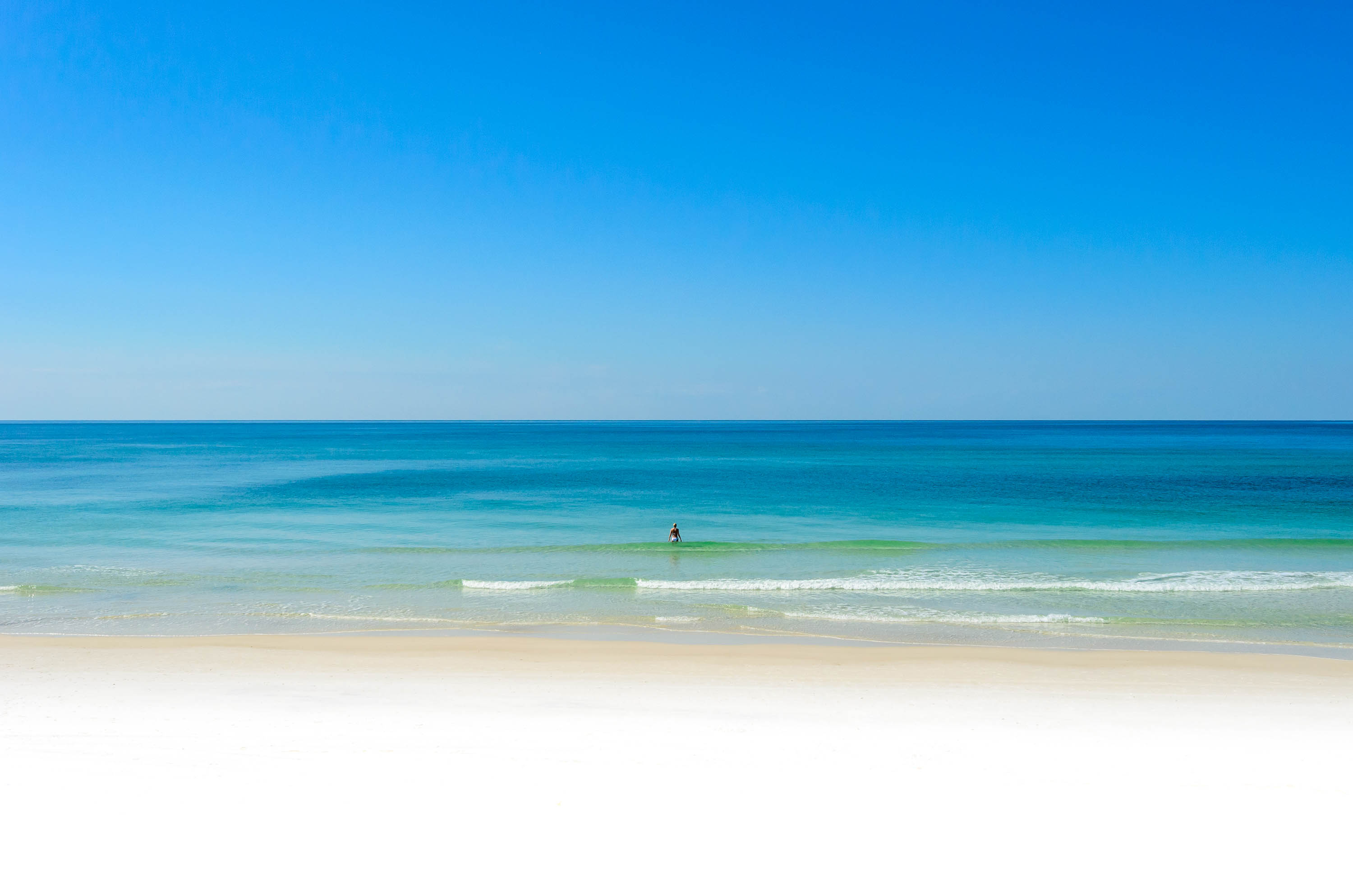From RealMoney.com
Investing
The Real Story: More Woe at St. Joe
By Marc Lichtenfeld
Senior Columnist
6/8/2006 9:30 AM EDT
URL:
http://www.thestreet.com/comment/investing/10290401.html
Shares of all homebuilders have been pounded like cheap beer at a fraternity house, but St. Joe (JOE:NYSE) stands out from the group -- and not in a good way.
St. Joe operates mainly in northwest Florida, which had seen a boom in development with buyers and visitors drawn to the pristine beaches on the Gulf of Mexico. St. Joe hoped that demand would continue, as it sold homes away from the beach and even in the woods. To put it plainly, it ain't happening, judging by recent events at a few St. Joe developments.
St. Joe was scheduled to release 12 condo units to the public last week in its Watersound Beach development. However, the sale was postponed, according to a St. Joe sales associate. The sales office does not yet have a date when the release will take place and was not given a reason for the delay.
It was due to a lack of demand, according to a real estate agent in the area, who requested anonymity, as he primarily sells St. Joe properties and is in litigation with the company. There are currently 52 St. Joe condos at Watersound up for resale, providing competition to the 12 new ones the company planned to sell.
According to several sources, the resale condos are in better locations than the 12 planned for release by St. Joe. There are currently 94 lots and 8 homes for resale in Watersound Beach as well.
Curiously, when asked for comment, St. Joe spokesman Jerry Ray said there are no condos in Watersound Beach, despite several listed for sale on St. Joe's Web site.
Ray did not respond to repeated followup calls seeking clarification.
Meanwhile, prices are plummeting in the development. The real estate agent is currently listing a lot for $465,000 that his client bought for over $800,000. He said he'll be lucky to get $450,000 for it.
A look at the prices of lots for resale shows either some desperate or unrealistic sellers. For example, one lot is being offered at $1.3 million, while the one next to it (which appears slightly larger) sold for $660,000 in March -- and we know prices haven't doubled in the past three months. Next to that one, a larger lot is being offered at $1.285 million, while an adjacent and similarly sized property is listed at $595,000.
St. Joe, like many developers, has a building timetable for many of its buyers. When a buyer purchases a piece of land, he agrees to build a home within a guaranteed period, typically three to five years, depending on the community and when the sale took place. In certain communities, if the owner reneges on the obligation, St. Joe has the right to buy back the land at the original price. That original price is valid even if the property is flipped several times.
St. Joe is extending the length of time buyers have to build by two years in its Watersound Beach and Watercolor communities, averting a potential public relations disaster.
Another potential PR situation could be developing at Watersound Beach. St. Joe owns and operates the Watersound Beach Club. Membership to the club was supposed to be included in the purchase price of a lot, according to a former Watersound Beach salesperson.
However, owners recently received a letter stating they will need to pay a $20,000 fee and $675 quarterly dues to be able to use the club. Owners have 90 days to exercise their membership decision. Again, Ray was not available for clarification.
In past columns, I have questioned whether demand will match supply for St. Joe's communities and homes. Building costs range between $300 to $400 per square foot for the high-end homes in St. Joe's exclusive communities.
At Rivercamps, a 1,500-acre community in Bay County, Fla., with permits for up to 450 homes, sites have ranged from $84,000 to $849,000 and have averaged roughly $200,000. Assuming a 3,000-square-foot house, the cost to own is well over $1 million.
"Rivercamps is a total joke," according to one hedge fund manager who is short St. Joe. The source, who requested anonymity, questions who is in the market to spend that kind of money and to be stuck in "a buggy pine forest on a bay," or at other St. Joe developments that are off the beach, when beach property is available in other parts of the country for roughly the same price or less. He believes the company parlayed its success in the Gulf of Mexico to entice previously successful speculators to buy up lots in much less desirable locations.
Demand was certainly high at Rivercamps when the company had its initial release in October 2003. At that time, 314 buyers submitted offers for 23 lots, according to a company press release. The fervor was still there in February of last year when 281 buyers submitted offers for 37 home sites.
However, there are currently only three houses (including one that's a model home) completed. "Nobody is building," according to the fund manager, who said he did not see a single new home under construction when he visited Rivercamps last month.
St. Joe's Ray, however, has said previously that construction has started on several houses and that "everything is on schedule."
St. Joe has its supporters.
"St. Joe has a balance sheet that can carry for the long run, so I am willing to for wait for the returns that I think will eventually come," says RealMoney.com contributor David Merkel, a senior investment analyst at Hovde Capital, who is long the stock.
Elsewhere, Third Avenue Management owned over 10 million shares, or 14%, of the company as of March 31. A Third Avenue representative refused to discuss St. Joe, instead pointing me to its recent shareholder letters. Its most recent shareholder letter does not mention St. Joe, other than to state the percentage of various portfolios that the stock comprises. In the fourth-quarter 2005 shareholder letter, St. Joe is grouped with companies that Third Avenue believes has "super good management with proven track records." Third Avenue also believes St. Joe has insulated itself from competition.
It's important to note that a critical member of that management team, former president and COO Kevin Twomey, recently retired. His exit is seen as a significant loss by Wall Street.
I don't disagree with the competition statement: St. Joe owns northwest Florida. However, while you can be the only Porsche dealer in town, if people aren't in the market for Porsches, it doesn't matter that there's no competition.
That's the situation St. Joe is in. Many properties are very costly and targeted toward the second-home buyer -- most of whom are not buying in this environment (in fact, some are bailing out). Although many homebuilders are suffering from fewer orders, St. Joe is exceptionally vulnerable because of the high-end market and region that it serves.
Lastly, in what I believe was a play to increase its asset value, St. Joe reclassified 199,000 acres of what was previously classified as timberland to land that can now be used for resort and recreational purposes.
CEO Peter Rummell pointed to new product lines like "new ruralism" (an example being Rivercamps), as ways the land can be put to better use.
I have argued since my first story on St. Joe that there will be a very select few attracted to this type of living, especially when real estate prices have stopped climbing. The lack of construction at Rivercamps proves that point.
St. Joe shares have been crushed, off 48% since their high in July and 27% since that original bearish article in March. With more ugly surprises likely in store over the next few quarters and sentiment turning increasingly negative, I suspect the stock still has a ways to go on the downside. I am maintaining my $31 price target, roughly 30% below Wednesday's close of $44.52.
--------------------------------------------------------------------------------
In keeping with TSC's editorial policy, Lichtenfeld doesn't own or short individual stocks. He also doesn't invest in hedge funds or other private investment partnerships.
Marc Lichtenfeld was previously an analyst at Avalon Research Group and The Weiss Group and a trader at Carlin Equities. He holds NASD 86,87, 7 and 63 licenses. His prior journalism experience includes being a reporter/anchor for On24 in San Francisco and a managing editor of InvestorsObserver, a personal finance Web site. He is a graduate of the State University of New York at Albany. He appreciates your feedback; click here to send him an email.
--------------------------------------------------------------------------------












